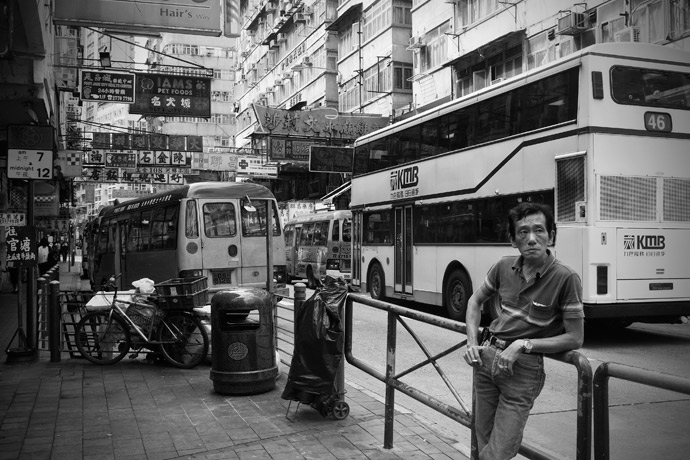1) Photography is a second career for you. What advantage and/or disadvantage did that create for you?
I’ve actually found it quite to my advantage that I had a previous career in public relations.
My PR background gave me some solid skills that I have found to be quite useful, namely:
– Networking:
I hate this term since it sounds so phony, but it really is important. In my previous career it became evident that there were people who were quite good at what they did. I would make every effort to get to know them and learn what I could from them.
In photography I was able to quickly size up the industry – who was who, who makes decisions, who is good at their job and is well respected – and then seek them out to meet them. That alone has helped a ton.
I’ve found that if you’re eager and willing to listen, people are more than happy to help.
– Expectations:
I think I was pretty realistic about what to expect when starting a business. I knew it would take time, that I’d have to work hard and put in my time at the bottom and that the work ethic I had applied to my previous career would carry me through in this new job.
– Marketing:
The basics of getting myself up-and-running were easier. I was familiar with invoicing (as I managed clients I knew what I liked/disliked in invoices I received). I know what clients expect from suppliers. I was not nervous about creating a business plan, how to find clients and how to keep clients happy. I knew how to sell myself.
– Writing:
Some projects I picked up this year involved writing. I’m able to market myself as a writer and photographer, a skill that a lot of my clients appreciate.
– Service:
Having worked on the client side of the business, managing suppliers (in PR) I knew how I wanted people to manage my account. I instinctively knew what newspapers and other clients were looking for in a photographer beyond just technical skills.
I took editors to lunch and for drinks, I dropped off thank you cards to anyone who spent any iota of time with me, I brought Christmas gifts for the editors who gave me work, I did pro-bono work on small projects for corporate clients who gave me large chunks of business. All these small things really make a big difference. People want to work with people that they like.
– Clients:
I had a base of clients immediately upon arriving in Toronto. I did a quick tour of all the major PR shops in town and picked up work from them. I also checked in with some of my PR colleagues working at companies (e.g., pharmaceutical companies). Building up a network like that would have been challenging otherwise.
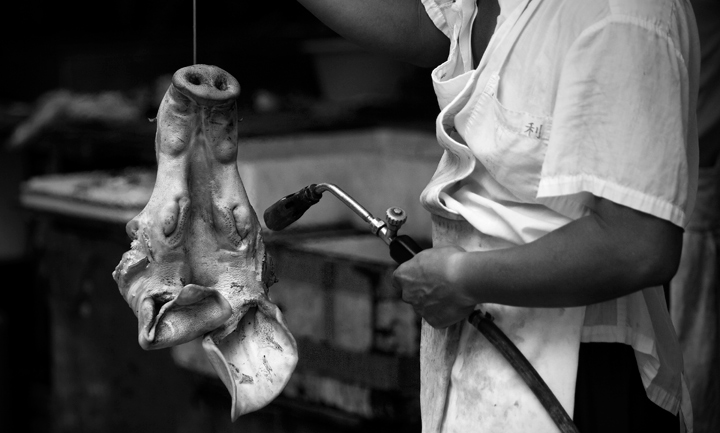
2) You are now a few years into your career as a photographer so what are your thoughts on the photo education you received before embarking on this career? What mattered and what didn’t? What do you wish you were taught that you weren’t?
I did a commercial photography course but ended up going into photojournalism. Looking back, I wish I had done strictly a photojournalism program. Some of the skills I learned in the commercial program were great, but took up a lot of time that I could have used to hone my photojournalism skills (e.g., all the printing courses and some of the high end photoshop courses).
Also, it was that much more of an uphill battle to find a job since the program at Loyalist seems to provide students with more contact with the newspaper industry than other schools.
I wish I had been taught more on-site lighting skills. We mostly did studio lighting and while the principles are the same, the actual technical details of using your speedlight got skimmed over. To this day I’m still not 100% comfortable with my speedlight.
I wish we had done some multimedia. The commercial program didn’t do this at all but it would have been nice to have at least a basis in it.
As much as I enjoyed the film component of the course at WAP, I felt that it took away time from learning the ins and outs of digital photography.
I wish we’d learned more about managing your workflow and backing up your work. I had/still kind of have an ad hoc process. It’s getting better but a firm foundation to work from would have been helpful.
I also wish there had been more emphasis on finding out your style. I found that on the photojournalism front (and Loyalist is guilty of this as well – I was a judge of this year’s NPAC student of the year portfolios) there is too much emphasis on producing the portfolio of a well-rounded wire-shooter or at a daily.
Everyone produces a portfolio that has three features, three sports shots, three portraits and three news images. It created a generic look and everyone’s stuff starts to look the same. People need to learn to shoot these things, but I’d really emphasize the importance of shooting work to stand out. Shoot what you love. I’d really like to see more documentary work from students – from a project they are working on – than the crappy university rugby shot that they needed to round out the sports section of their portfolio.
To be honest, the best education I got was actually working on the job and meeting with working photographers. My internships at papers were invaluable.
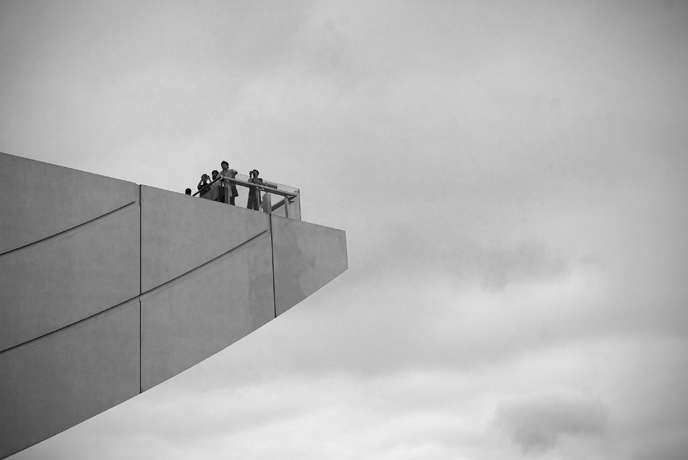
3) What lessons have you learned from actually working as a photographer that you wished you knew when you began shooting as a pro?
I wish I had known just how stressful assignments would be. I spent my first eight months freelancing for the Globe and Mail thinking I was going to throw up every time my phone rang.
I would sometimes go to assignments and think to myself, “How am I going to turn THIS into a photo?” (I did a lot of R.O.B assignments early on – generic, boring offices). Now I’m calm and know that I’m always going to produce a publishable shot (and more than one).
There’s so much technical know-how to absorb in school that I didn’t know how to deal with people when I first showed up at assignments. Now I have a little bit of a routine. I ask them if they’ve had their photo taken for the paper before. I explain that it’s not like having their photo taken by their friends for facebook, that I have to provide at least six different shots for the paper, that it’s not going to take five minutes. Giving them some context for this really helps.
People don’t like ambiguity. They want direction. They want to feel like they know what’s going on all the time when they’re having their photos taken. They need to be told to relax when you’re taking a few seconds to adjust something with your light or with the camera. They want to know when you’re going to start shooting.
This is obviously different for a documentary style shoot. In those cases people need to be told to “just ignore the camera – just do whatever it was you were doing before I showed up.”
4) How important has your website and blog been to your career?
I think having a web presence is essential. However, I’m finding that having a blog is more important than a website.
The blog has an ongoing evolution that I enjoy. You can post pics from assignments, from your day-to-day living, from trips or anything you find interesting.
The web site is more fixed and I keep meaning to update it but never seem to find the time. I’m thinking of possibly transitioning to a hybrid site/blog where I have a portfolio posted but the bulk of the content is constantly new on the blog portion of the site.
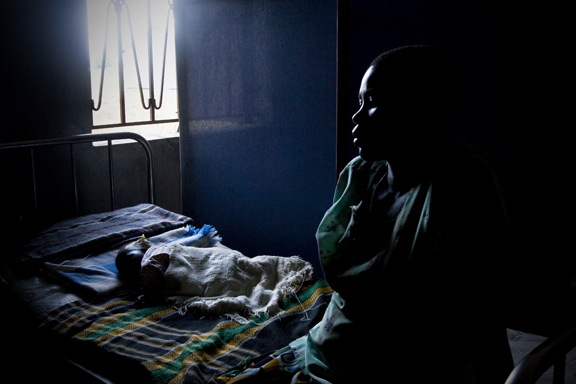
5) Do you use social media for work at all? If so how?
I find my facebook to be an important photography networking tool. It’s become a virtual community for me. It’s how I find out about photography events going on in Toronto and how I keep in touch with other photojournalists.
I don’t have a “fan” page up on facebook yet, but I’m considering doing that next. I think it’s just one more resource for people to find you and the work that you do. It’s just another way to share what you’re doing with friends, clients and other photographers.
I used Twitter for a while, but found eventually that I was just using it to pick up information from others. I haven’t used it in over a year but I’m considering picking it up again.
6) Is video a part of the photo services you offer. Why or why not?
Right now video is not one of the services I offer. When I met with John Lehmann from the Globe he told me to focus on being a better photographer first.
I recently took a course with Brent Foster at Pikto on multimedia. However, it seems super expensive to get into and if I’m going to go that route I want to be sure I’ll make money off of it. Recently a number of freelancers have sold off their audio and video gear. No one is asking them for it.
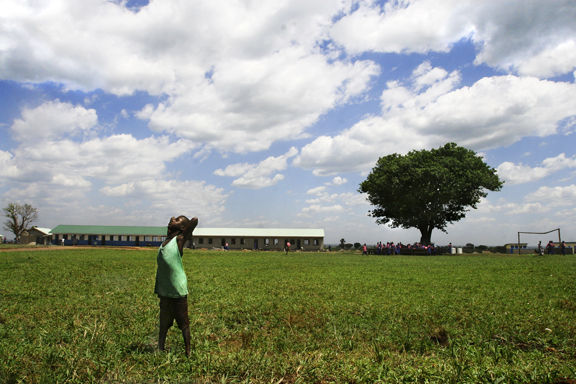
7) What types of photo assignments are you doing these days?
I’m shooting mostly for the Globe and Mail and very occasionally for the Post.
I shoot a lot of portraits, but not traditional portraits. The Globe wants to see more of a documentary approach – people doing their thing as opposed to a posed environmental portrait. I much prefer this type of assignment.
I also shoot a lot of concerts. Lots of late nights, lots of weekends and lots of last minute requests.
Finally, I’ve been shooting a ton of “Society Page” events for the Globe. These are parties where I literally hunt out famous or attractive people at exclusive events (where the Globe is usually the only photographer allowed inside) and ask people to stand together, like for a facebook picture. It’s not super challenging but it’s great for contacts and I’m starting to make the most of it by shooting interesting things that I see on my own since this type of access is usually pretty limited.
I shoot very little “news” (that tends to go to the staffers but I’m occasionally at press conferences or outside courthouses) and have not shot any sports since the fall of 2008 when I shot the Senators pre-season exhibition games for the Ottawa Sun.
8) What has been your most memorable assignment so far?
Easily the work I did for an NGO – Canadian Physicians for Aid and Relief (CPAR) in Uganda and Tanzania. I spent the month in refugee camps in Uganda and on rural farms in Tanzania. It was absolutely incredible.
Editorially, the assignments I remember most were spending the day with Canada’s youngest breast cancer survivor (four-years-old). I also spent an evening with a family in Regent Park (a social housing project in Toronto). Finally, one day the Globe sent me to photograph cows that had been set up outside the ROM. It was so fun!

9) What are the advantages for you of working in a large city like Toronto?
The sheer amount of work available in Toronto is staggering. I cannot believe how much work there is! So many stories originate from Toronto so there is a ton of editorial work and most companies are based here so there are a lot of corporate clients to pick up as well.
In fact, it’s been almost a burden for me because I’ve spent the last year and a half constantly taking assignments and haven’t really taken some time to figure out exactly what it is I want to do next or what I want to shoot myself.
There’s a huge photo community in Toronto as well. Photo festivals like Contact are inspirational and allow you to meet other photographers. It’s a lot to wade through but it’s wonderful.
10) Are you working on any personal projects?
I’m ashamed to say that I’m not right now. Since landing in Toronto in April of 2009 I’ve been so busy chasing work with clients that I have not left myself an iota of time to work on things I would like to.
Every time I decide to start on a personal project I get derailed. So the goal is for January (when it’s quiet) to work on one personal project, get my website revamped and set a course for 2011. I have a book where I keep a number of project ideas and I know which one I’d like to start with.
You can see more of Della Rollins work and read her blog here.

